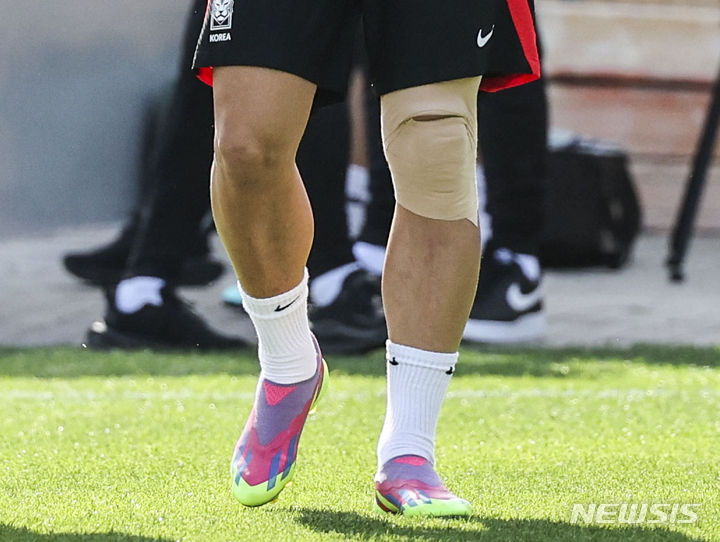Physical Address
304 North Cardinal St.
Dorchester Center, MA 02124
Physical Address
304 North Cardinal St.
Dorchester Center, MA 02124

The increasing occurrence of knee osteoarthritis among young adults, including those in their 20s, can be attributed to several key factors. Understanding these causes is crucial in addressing the issue and developing effective strategies to mitigate its impact.
One significant cause of knee osteoarthritis among young adults is the prevalence of sedentary lifestyles and a lack of regular physical activity. With the rise of desk jobs, technology dependence, and a decrease in active recreational activities, many young adults are leading more sedentary lives. This lack of physical activity contributes to weakened muscles, poor joint stability, and increased stress on the knee joints, leading to the development of osteoarthritis.
Another major cause of knee osteoarthritis in young adults is the increasing prevalence of obesity and excess weight. Excess weight puts additional strain on the knee joints, leading to accelerated wear and tear of the cartilage. The higher the body mass index (BMI), the greater the risk of developing knee osteoarthritis. Factors such as unhealthy eating habits, a sedentary lifestyle, and genetic predisposition contribute to the rising rates of obesity among young adults.
Joint injuries and trauma, particularly those sustained during sports activities or accidents, can significantly increase the risk of developing knee osteoarthritis later in life. Young adults who engage in high-impact sports or activities that involve repetitive stress on the knees, such as running or jumping, are more susceptible to joint injuries. These injuries can damage the cartilage and structures within the knee joint, leading to the early onset of osteoarthritis.
Genetic factors also play a role in the development of knee osteoarthritis among young adults. Certain genetic variations can affect the structure and composition of the cartilage, making it more susceptible to degeneration. Individuals with a family history of osteoarthritis are at a higher risk of developing the condition at a younger age.
Issues with joint alignment and biomechanics can contribute to the development of knee osteoarthritis. Conditions such as misalignment of the knee joint, abnormal gait patterns, or muscle imbalances can place uneven stress on the knee joint, leading to accelerated wear and tear of the cartilage. Young adults with these structural abnormalities are more prone to developing osteoarthritis.
Environmental factors, such as exposure to certain occupational hazards or repetitive activities, can also contribute to the development of knee osteoarthritis among young adults. Jobs that involve prolonged kneeling, squatting, or heavy lifting can increase the risk of joint degeneration. Additionally, activities that involve repetitive knee movements, such as certain sports or occupations, can accelerate the wear and tear of the knee joint.
By understanding the causes behind the rising prevalence of knee osteoarthritis among young adults, healthcare professionals, policymakers, and individuals themselves can work towards implementing preventive measures, promoting healthy lifestyles, and developing targeted interventions to reduce the impact of this condition.
The rising prevalence of knee osteoarthritis among young adults has significant effects on various aspects of their lives. Understanding these effects is crucial in highlighting the importance of prevention, early intervention, and appropriate management strategies.
One of the most immediate and noticeable effects of knee osteoarthritis is chronic pain. Young adults with this condition often experience discomfort and tenderness in their knees, particularly during activities that involve bending, squatting, or climbing stairs. This chronic pain can significantly limit their ability to perform daily tasks, such as walking, running, or participating in sports. The physical limitations imposed by knee osteoarthritis can greatly impact their overall mobility and functional abilities.
Knee osteoarthritis can have a profound impact on the overall quality of life for young adults. The chronic pain, physical limitations, and restricted mobility associated with this condition can lead to a decreased ability to engage in activities they once enjoyed. Young adults may find themselves unable to participate in sports, hobbies, or social events, resulting in a loss of enjoyment and a diminished sense of well-being. The impact on their quality of life can lead to feelings of frustration, isolation, and a decline in mental health.
The effects of knee osteoarthritis can extend to the workplace, impacting work productivity and career prospects for young adults. The chronic pain and physical limitations associated with the condition can make it challenging for individuals to perform their job duties effectively. Jobs that require physical exertion or prolonged periods of standing or walking may become increasingly difficult to sustain. This can lead to decreased work productivity, missed workdays, and limited career advancement opportunities, ultimately affecting their financial stability and professional growth.
Knee osteoarthritis places a significant burden on the healthcare system and individuals themselves. The management and treatment of this condition often involve consultations with healthcare professionals, diagnostic tests, medication, physical therapy, and, in severe cases, surgical interventions. The increasing prevalence of knee osteoarthritis among young adults can lead to higher healthcare costs, longer wait times for appointments, and limited access to specialized care. Additionally, individuals may require time off work for medical appointments, rehabilitation, or recovery, further impacting their financial well-being.
Knee osteoarthritis in young adults can have long-term consequences and increase the risk of developing other musculoskeletal disorders and overall health issues. The altered gait patterns and compensatory movements due to knee osteoarthritis can lead to joint instability and increased stress on other joints, such as the hips and lower back. This can result in the development of secondary osteoarthritis or chronic pain in these areas. Furthermore, the chronic inflammation associated with knee osteoarthritis can contribute to systemic health problems, including cardiovascular diseases and metabolic disorders.
Recognizing the impact of knee osteoarthritis on young adults is crucial in promoting early intervention, implementing preventive measures, and providing appropriate support and resources. By addressing the effects of this condition, healthcare professionals, policymakers, and individuals can work together to improve the overall well-being and quality of life for young adults affected by knee osteoarthritis.
If you’re wondering where the article came from!
#